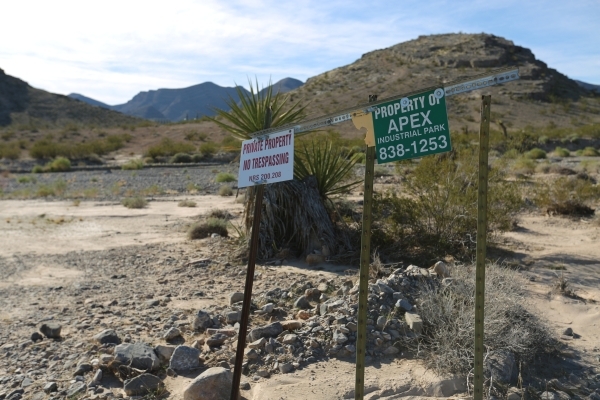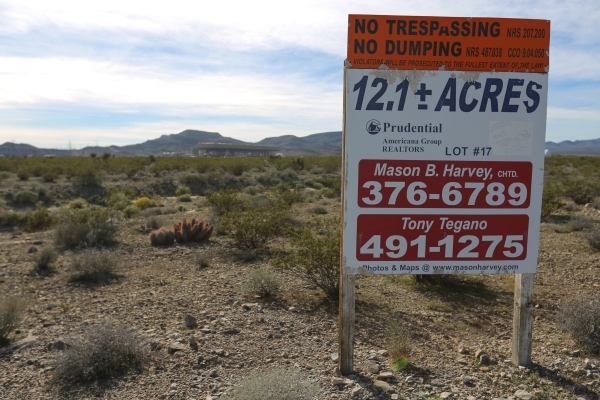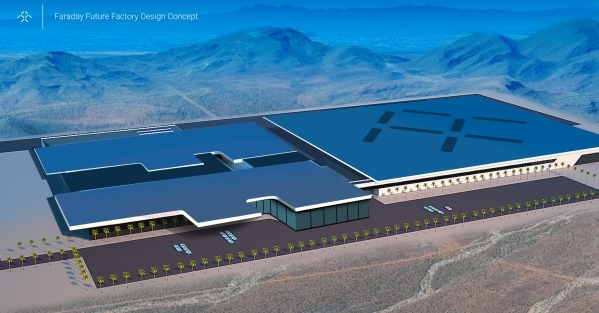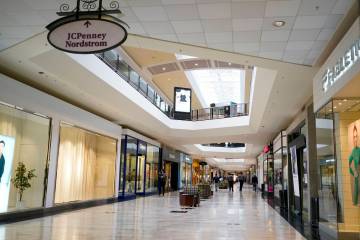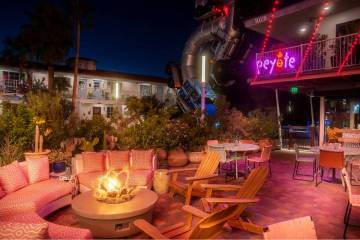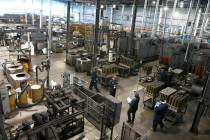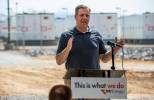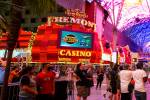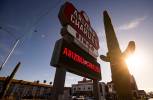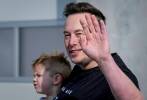Faraday Future’s Nevada factory should boost economy well beyond Apex
CARSON CITY — Faraday Future's decision to build a $1 billion auto plant in North Las Vegas will generate economic waves throughout the region and attract other companies, positioning Southern Nevada as a hub for international corporate headquarters, some economic development officials say.
"It's a trophy project and will have long-range implications in the years ahead," said John Boyd, president of The Boyd Company, a New Jersey-based site-selection consulting firm. "It's making Nevada the center of gravity for the new auto industry."
Gov. Brian Sandoval and state and local economic development officials announced a deal with Faraday on Thursday that includes tax incentives valued at $217 million over 15 years, depending on the company's actual investment. Additionally, the state will help with infrastructure needs at the Apex industrial site in North Las Vegas where the company plans a 3 million square-foot assembly plant.
Dag Reckhorn, Faraday's global vice president of manufacturing, said the company backed by Chinese billionaire Yueting Jia hopes to break ground in early 2016 and begin producing electric cars within two years.
Jia, with a net worth of $7.9 billion according to Forbes, owns LeTV, which observers call a Chinese Netflix. He said Faraday is focused on "creating the next generation of seamlessly connected, intelligent electric vehicles and mobility solutions."
Faraday's venture into Nevada comes about a year after Tesla Motors, led by billionaire entrepreneur Elon Musk, began building a $5 billion lithium-ion factory in Northern Nevada where batteries for its electric cars and home-energy storage units will be made.
Also this week, Hyperloop Technologies Inc., announced it will build a test facility for a futuristic transportation system at the same North Las Vegas industrial park.
Industry observers draw comparisons to the impact of those developments to changes in the economy of Georgia, South Carolina and Tennessee after the traditional auto industry opened plants in the South to take advantage of lower-cost, non-union labor.
In South Carolina, the auto and auto-parts industries now employ more than 58,000 people with an annual impact of $27.1 billion, according to the South Carolina Department of Commerce.
It began in 1992, when BMW established its first manufacturing facility outside Germany at Spartanburg, S.C. Since then, the industry in that state has grown four-fold, with auto employment climbing 121 percent from 1980 to 2013 and jobs paying wages 40 percent higher than the state average.
"A 2014 study of the BMW plant showed that the company's annual economic impact is $16.6 billion and generates more than 30,700 direct and indirect jobs," Alex Clark, deputy communications director for the South Carolina agency, said in an email. "For every one job created in the automotive industry, there are more than three jobs created in other places in the economy."
Steve Hill, Nevada's economic development chief, said Faraday will employ 4,500 people and create 9,000 indirect jobs.
Boyd said Southern Nevada, with the arrival of Faraday, could be poised to become a magnet for the auto industry of the future.
"It's the dawn of a new era for this industry," he said. "Nevada, because of its business climate, is going to be capitalizing on that."
KPMG, the global tax, audit and consultant firm, in a 2014 report described the auto industry as "crackling with innovation and entrepreneurship."
As the world enters an age of ultra-connectivity, "every aspect of the automotive business is changing: from how cars are designed, produced and built, to how they are marketed and sold, to the underlying economics," wrote Gary Silberg, a partner and national automotive industry leader at KPMG.
"Designing and producing new vehicles have become far too complex and expensive for any one company to manage all on its own; in the future, horsepower may matter less than processing power," Silberg wrote. "The winning companies will be nimble, future oriented — and prepared to invest in new technologies, new talent and new strategic alliances."
Boyd said that in addition to other companies that will supply its plant, Faraday will attract more high-tech brain power to the region and could entice big corporations to not only set up operations in Nevada, but bring their corporate headquarters as well.
"It'll be a catalyst for millions of dollars in new investment from suppliers," he said. "This is a coveted industry."
He pointed to the Peach State as an example. George boasts Porsche, Lotus, Kia, Honda and Hyundai operations, and this year Mercedes-Benz moved its North American headquarters to Atlanta.
"That's quite a sexy project," Boyd said of Georgia luring the German automaker's headquarters away from Montvale, N.J. "Las Vegas now has the opportunity to not only attract other manufacturing operations in the electric car industry, but it has the opportunity to attract head office operations, white collar jobs."
Boyd said after Tesla announced it chose Nevada as the location for its huge battery factory, the phones at his office began ringing nonstop. He expects a similar surge following Faraday's announcement.
"There will be global focus on the business climate advantage of Southern Nevada," he said.
"Northern Nevada had its day in the sun with Tesla. Now Southern Nevada, because of Faraday, will be in the limelight in terms of corporations looking for places to invest."
Contact Sandra Chereb at schereb@reviewjournal.com or 775-687-3901. Find her on Twitter: @SandraChereb.



